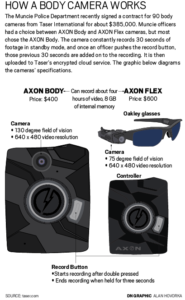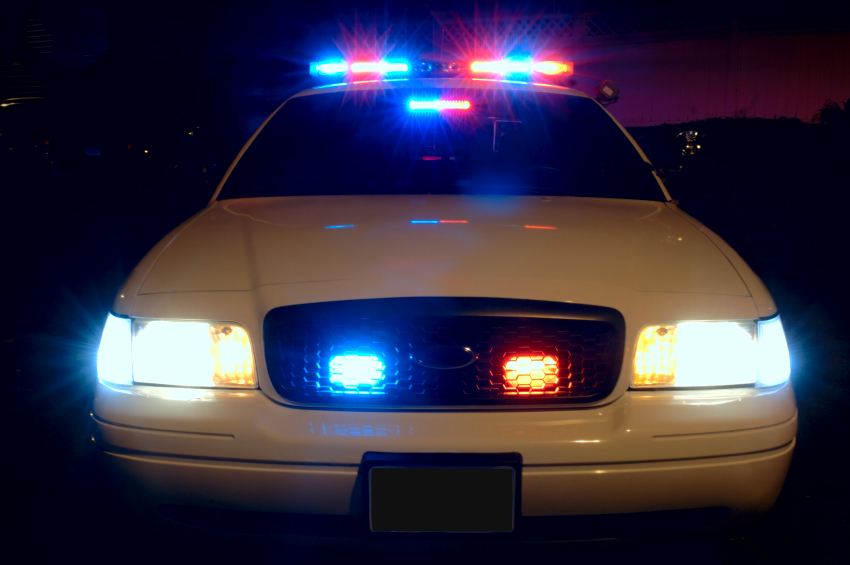A BILL PROPOSED under Indiana legislature would make video recorded from police body cameras not subject to public record.
Under House Bill 1019, police departments would have almost complete power to not release videos recorded by officers, even if requested by the Indiana Access to Public Records Act. The bill would give police departments the option of withholding video footage from body cameras or dashboards, and the public would have a right to view video only if they themselves were videotaped, if a deceased relative was captured on video or if their property was visible in the video.
And even in those situations, the video could only be viewed twice, and police departments won’t be required to provide a hard copy of the video. In all other cases, it would be at the discretion of each department to decide which videos it wants to release.
 For the Muncie Police Department, which started using body cameras a year ago, the bill might not impact much — but it still could if a case comes up.
For the Muncie Police Department, which started using body cameras a year ago, the bill might not impact much — but it still could if a case comes up.
MPD Chief Steve Stewart said of the 20,000 videos recorded by late-October, the department had not received public requests to view any of the footage, and he himself has only had to replay one video himself.
This proposed bill also means people would be required to sue police departments to obtain video footage, and a judge would make the final decision about whether to release the footage. Even if the individual won the lawsuit, personal legal expenses would not be reimbursed.
On Jan. 25, Democrats in the Indiana House of Representatives attempted an amendment that would require the video to be archived for 180 days, but it was defeated on a voice vote.
“If the officers or the sheriff or the police chief has an objection, they need to prove that the public interest is not served by giving it out, prove that it creates a significant risk of substantial harm to someone,” said Rep. Ed DeLaney (D-Indianapolis).
The legislators are expected to vote on the bill in the next few weeks.
Police departments around the country have been investing in body cameras — especially in the wake of cases like Laquan McDonald in Chicago and Michael Brown in Ferguson, Missouri. Video footage from incidents like these and others shed light on police actions, and advocates credit body cameras for enhanced police credibility.
“[The cameras] help protect the officers, but they’re also helping the people of the community,” Stewart said. “These officers have a great presence in the community already, and being able to record interactions — I think it’s helping people gain even more trust in the work [officers] are doing out there.”
Stewart said uniform officers have “adjusted nicely” to the new technology and that the equipment has been working well.
“It’s a great addition to the work our [officers] do,” Stewart said. “There’s accountability for everyone when a situation is being documented, and I think [the officers] are feeling a lot better — a lot more comfortable — about using the cameras.”
In March 2015, the City of Muncie agreed to pay Taser International close to $380,000 over five years for officers to use 90 body cameras and necessary related equipment. Some of this cost, however, is being alleviated by the Muncie Redevelopment Commission and through grant funding.
Officers can now record situations they respond to with the camera on their chest, and after the incident ends, the footage can be uploaded to an app on a cell phone and stored for later retrieval.
“I think the cameras are great,” said MPD Officer Justin Thomas. “Not only do they catch exactly what happens so no one can come back later and try and fabricate something, but just having them on, I feel like, keeps a lot of the situations de-escalated.”
Thomas has used the body cameras since they were introduced to the department, and he said a lot of people he interacts with “are on better behavior when they know we are recording them.”
“They also help a lot when we are writing our reports,” Thomas said. “If we forget exactly which order some particular event played out in, we can go back and review the footage. I think they’re great.”
